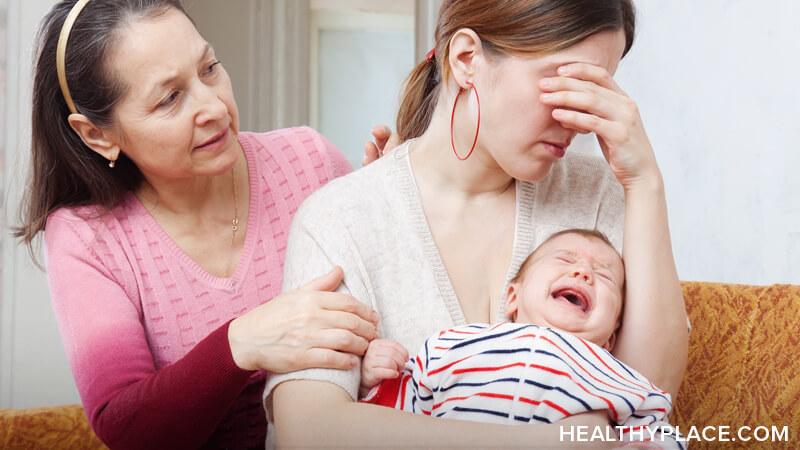How Postpartum Depression Affects Your Family

Postpartum depression (PPD) does not just affect the individual suffering from it. It also affects the family. If you're dealing with postpartum depression, it can be easy to become so introspective that you lose perspective of those around you. By trying to understand how your loved ones are feeling, however, you can strengthen your relationships while also helping them more appropriately support you.
When Family Can't Understand PPD
It's frustrating when your loved ones do not understand what you're experiencing. In fairness to them, a lot of postpartum depression symptoms don't make sense. Excessive exhaustion, mood swings, or sudden changes in appetite are all common symptoms, but they're not easily explained. If your loved ones haven't been through it, it may be impossible for them to fully understand. That fact may leave them feeling frustrated.
In that case, articulating how you feel is important to helping them sympathize. My husband was my first line of support, and he obviously had never experienced postpartum depression. So, I would explain to him how I felt. I would describe the physical manifestations of my depression, like how I felt like there was a crushing weight on my chest. That allowed him to respond more precisely. It was a give-and-take. I gave him communication, and he returned that with plenty of patience and support.
Family Must Deal with the Powerlessness of PPD
Dealing with a problem you can't fix can be infuriating, especially if it's hurting someone you love. If you have postpartum depression, your family might want to "fix" it for you because they don't like seeing you suffer. The problem with that, of course, is that they can't. Postpartum depression is a condition that can be treated, but it's not a problem to be fixed.
Absolving your loved one of the responsibility to fix your postpartum depression can go a long way in helping them be productive while you seek PPD treatment. Letting them know how they can help in your treatment is important. My husband couldn't make my depression go away, but he could care for our children while I went to the doctor. He couldn't give me more energy, but he could pick up dinner on the way home. Simple shows of support were huge, but he had to accept the limitations of his support. Letting him know I didn't expect him to solve all my problems for me was crucial.
Communicating Effectively
Someone dear to me used to say, "Our communication isn't always pretty, but it gets the job done."
Communication can be messy, but it's necessary to have a strong relationship. If you're fortunate enough to have the support of your family, don't reward them by shutting them out. Tell them what you need. Tell them how you feel. Make sure they know you don't blame them, and make sure they know you appreciate them.
If you need help communicating with your loved one on those rough days, watch the video below for a "magic phrase" that helped me tremendously.
APA Reference
Epperson, K.
(2022, January 13). How Postpartum Depression Affects Your Family, HealthyPlace. Retrieved
on 2026, March 3 from https://www.healthyplace.com/blogs/copingwithdepression/2022/1/how-postpartum-depression-affects-your-family
